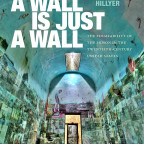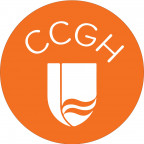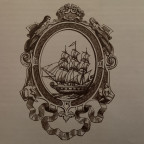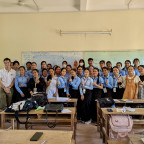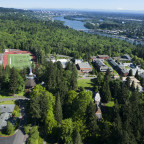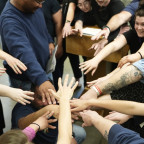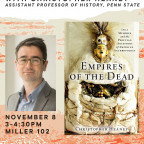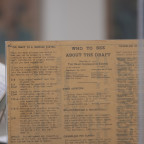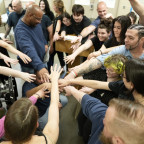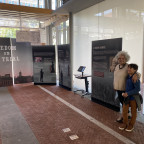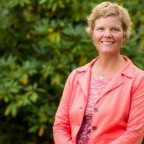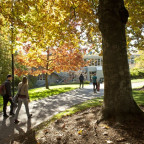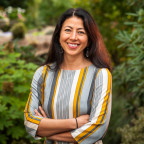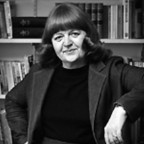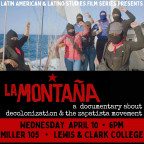News and Events
- NEWScivic engagement, Ethnic Studies, faculty, feature, History Major, History Minor, History, human rights, humanities, interdisciplinary, Latin American Studies, law, Political Science Major, research, Sociology and Anthropology Major
Faculty book release: “A Wall Is Just A Wall: The Permeability of the Prison in 20th Century America” by Reiko Hillyer
Please join us in congratulating Associate Professor of History and Department Chair Reiko Hillyer on the upcoming publication of her latest book, A Wall is Just a Wall: The Permeability of the Prison in 20th Century America (Duke University Press, February 16, 2024). Influenced by her work teaching in the Inside-Out program, Hillyer traces the decline of practices that used to connect incarcerated people more regularly to the free world.
Health + Humanities Community Connections: Faculty Grant
Up to three CAS faculty will be awarded Health + Humanities Community Connections Faculty Grants to support courses that include new community partnerships in health + humanities. Applications are open now!
Ethnic Studies Minor, Ethnic Studies, History Major, History Minor, History, human rights, humanities, multicultural, Political Science Major, Political Science MinorElliott Young Op/Ed: “New art exhibition raises questions about policing in Portland” in Portland Tribune
LC Professor of History Elliott Young has a new Op/Ed in The Portland Tribune entitled, “New art exhibition raises questions about policing in Portland.”
Elliott Young is professor of history at Lewis & Clark College and the author of “Forever Prisoners: How the United States Made the World’s Largest Immigrant Detention System.”New Exhibition Focuses on Narratives of Piracy, Exploration, and Criminality
Fortune and Glory, a collaborative faculty-student history exhibition, is on display in Watzek Library from now until March 2024.
alumni, History Major, History Minor, History, international education, Life after LCAidan Bennett (BA, ’21) Peace Corps Volunteer in Cambodia
The History department is excited to share that Aidan Bennett (BA, ’21) is currently serving with the Peace Corps in Cambodia, and has shared with us a bit about his experience.
humanities, researchPaid Summer Research Enables Faculty-Student Collaboration
Over the summer, Lewis & Clark offers students paid, hands-on research experiences that rival those of graduate-level institutions.
Spring ’24 Prison Exchange Class Performance from the Inside-Out
Inside-Out Prison Exchange ClassTH238 Performance from the Inside/OutFridays 12:45-3:45 pm, Spring 2024Class held at the Columbia River Correctional InstitutionTaught by Associate Professor Rebecca LingafelterThis is a 200-level Theatre class held at Columbia River Correctional Institute exploring the techniques and applications of autobiography to performance. It is an integrated class of 15 undergraduates and 15 incarcerated students who will learn together as peers.Because of the special nature of this class and limited space,
Outside student applications are now closed for the Spring ’24 Inside-Out course.Upcoming: Empires of the Dead with Christopher Heaney
This event is sponsored by the History, Ethnic Studies, Hispanic Studies, Latin American and Latino Studies and Sociology/Anthropology Departments
Exhibit Focuses on Oregon’s Conscientious Objectors
Two students curated Pacific Renaissance: The Legacy of Conscientious Objection During World War II. The exhibit is available to the public through November in Watzek Library.
Portland, theatreThe History of Incarceration Turned Inside-Out
In late April, 15 students from Lewis & Clark and 15 students from the Columbia River Correctional Institution performed an original theatre piece as the culmination of their Inside-Out history course, Crime and Punishment in the United States.
Family History as American History
Valerie White, L&C’s ombudsperson, shares her family’s history as Black abolitionists in an exhibit at Liberty Bell Center in Philadelphia and in an upcoming book.
World Languages MajorCry of Freedom: New Inside-Out Prison Exchange Course
Prof. Molly Robinson will be teaching a new course this Fall at Columbia River Correctional Institution as part of the Lewis & Clark College Inside-Out Prison Exchange Program. All interested students should apply!Ethnic Studies, History Major, History, human rights, no-screens, Political Science Major, Political Science Minor, Psychology Major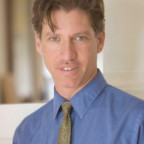
Elliott Young Op/Ed on Involuntary Incarceration in Washington Post
Elliott Young has a new Op/Ed in The Washington Post entitled, “Locking up the mentally ill has a long history: The prospect of removing people from communities to be put in institutions has been a project of social control.”
Elliott Young is professor of history at Lewis & Clark College and the author of “Forever Prisoners: How the United States Made the World’s Largest Immigrant Detention System.”Fulbright Winners to Circle the Globe as Researchers and Teachers
As recipients of prestigious Fulbright awards, four members of the L&C community will work abroad next year: Meredith Stinger BA ’19 (India), Mila Wolpert BA ’19 (France), Amelia Madarang BA ’22 (Taiwan), and Alex Webb BA ’22 (Colombia).
PortlandFrom Stumptown to Portlandia: Students Explore Portland’s History
Reiko Hillyer, associate professor of history, teaches a course about Portland’s multifaceted history, which encourages students to develop a deeper sense of place. - EVENTS
Past Events
April 19, 20242024 Reception for Dorothy Berkson Writing Award in Gender Studies
Join us for the 16th Annual Dorothy Berkson Writing Award in Gender Studies reception and presentation by award recipients.
April 11, 2024Job and Internship Fair
Whether you’re trying to figure out plans for the summer or something more long-term, we’d like to invite you to jumpstart your career at the upcoming Job & Internship Fair hosted by the Career Center!
April 10, 2024LALS Movie Series: La Montaña in Miller 105
Join us for the Pacific Northwest premier screening of the Documentary “La Montaña”, depicting decolonization and the Zapatista movement.
History is located in Miller Center on the Undergraduate Campus.
MSC: 41
email history@lclark.edu
voice 503-768-7405
fax 503-768-7418
Chair Reiko Hillyer
Administrative Coordinator Amy Baskin
History
Lewis & Clark
615 S. Palatine Hill Road MSC 41
Portland OR 97219
